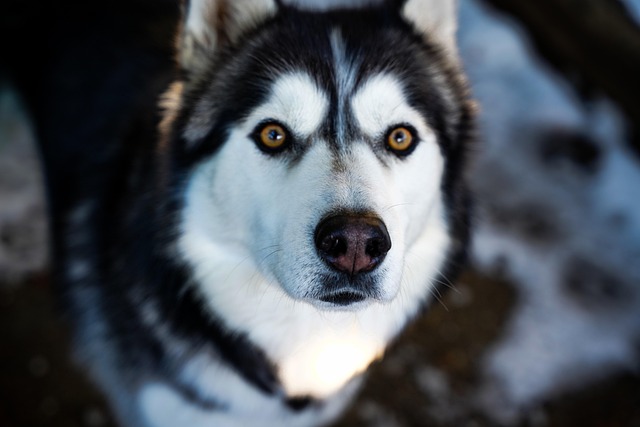
What is glaucoma in a dog?
You might notice your dog squinting more at mealtime or avoiding bright sunlight—these small changes could be early signs of a serious eye condition.
Huskies, with their striking almond-shaped eyes, are prone to dryness and irritation—especially in windy climates or after long walks in dusty parks. Getting those tiny drops into their eyes can feel like a wrestling match, but with patience and the right approach, it becomes manageable. Start by prepping your supplies: a clean towel, your vet-prescribed eye drops, and maybe a high-value treat like freeze-dried salmon. Pick a quiet spot where your Husky feels secure, away from distractions like barking neighbors or zooming kids.
Calm is key here. Huskies sense tension, so take a few deep breaths before you start. Gently cup their muzzle with one hand, using your thumb to gently pull down the lower eyelid—this creates a small pocket for the drops. With your other hand, hold the bottle close but not touching their eye, and squeeze out the prescribed number of drops. Most Huskies will blink a few times, which is normal—this helps distribute the medication.
 If your Husky squirms, don’t force it. Take a break, offer a treat, and try again. Some owners find wrapping a towel loosely around their Husky (like a cozy burrito) helps keep them still, especially if they’re wiggly. Remember, positive reinforcement goes a long way—praise them warmly after each successful application, and they’ll start associating the process with good things.
If your Husky squirms, don’t force it. Take a break, offer a treat, and try again. Some owners find wrapping a towel loosely around their Husky (like a cozy burrito) helps keep them still, especially if they’re wiggly. Remember, positive reinforcement goes a long way—praise them warmly after each successful application, and they’ll start associating the process with good things.
It’s important to follow your vet’s instructions closely. Overusing eye drops can irritate the eyes further, and skipping doses might slow recovery. In many European countries, like Germany, veterinary medications require a prescription, so never use over-the-counter drops without consulting a professional. Similarly, in parts of the US, certain eye treatments are regulated to ensure pet safety.
Keep an eye on your Husky’s behavior after application. If they rub their eyes excessively, squint, or show signs of discomfort, contact your vet right away—these could be signs of an adverse reaction. Also, store the eye drops as directed, usually at room temperature, and check the expiration date regularly. Outdated medications won’t work and might cause harm.
With consistency, most Huskies adapt to eye drop routines. Think of it as part of their regular care, like brushing their thick coats or trimming their nails. The better you get at staying calm and confident, the more your Husky will trust the process. Before you know it, those quick daily drops will be just another small step in keeping your energetic companion happy and healthy.
Always prioritize your Husky’s comfort and health. When in doubt, reach out to your vet for guidance—they’re the best resource for ensuring you’re doing what’s right for your furry friend. After all, those bright, expressive eyes deserve the best care possible.

You might notice your dog squinting more at mealtime or avoiding bright sunlight—these small changes could be early signs of a serious eye condition.

Let’s set the scene: It’s a sweltering Phoenix afternoon—105°F outside—and you rushed your 2-year-old Lab mix, Cooper, on a quick walk to “get it over with.”

Let’s get real: You’re in your Miami apartment, watching your 3-year-old Corgi, Loki, struggle to climb the stairs to your second-floor unit.

Many dog owners brush off occasional scratching as just “dog behavior,” but persistent itching often signals something more—like a food allergy.

You might first notice your dog scratching more than usual—chewing at their paws until the fur looks thin, or rubbing their face against the couch nonstop.

Let’s be real: You’re standing in your Chicago apartment, watching your 3-year-old Beagle, Max, huff and puff just to climb onto the couch.